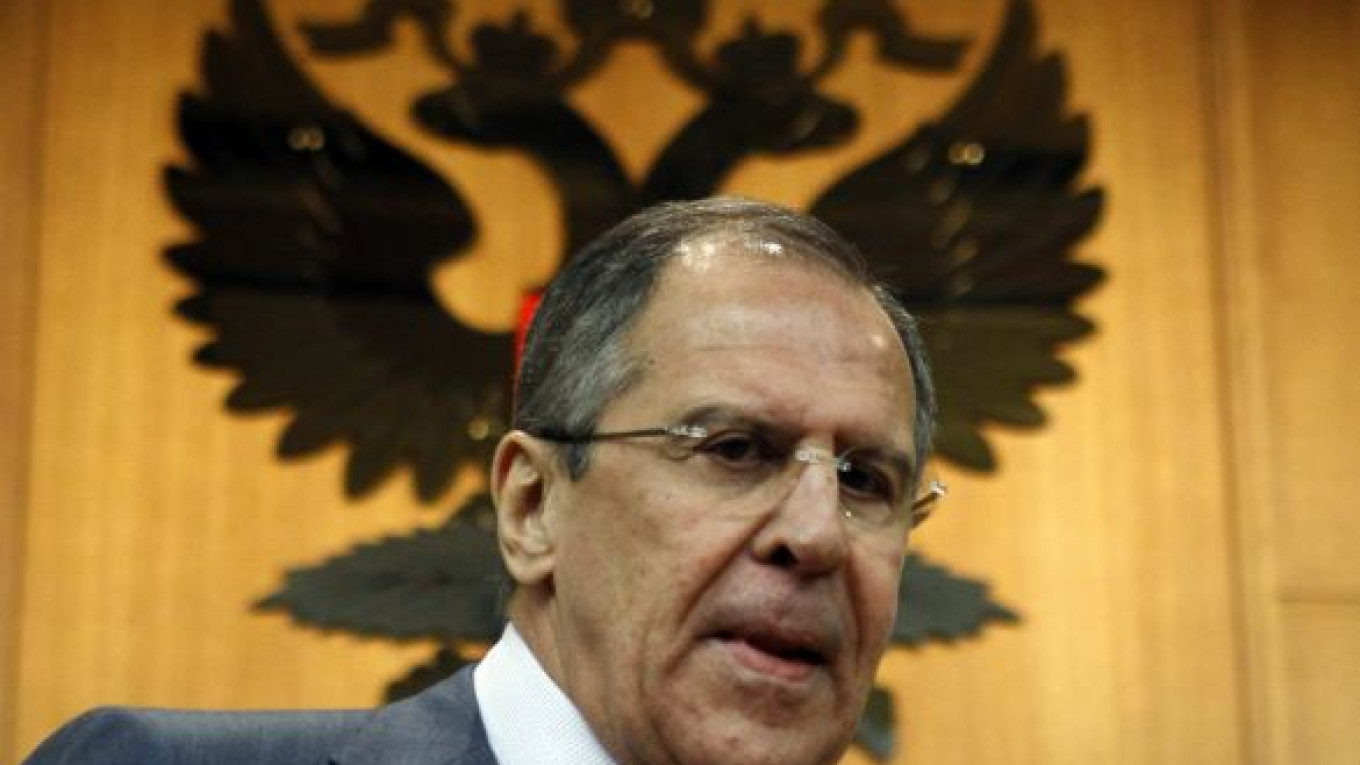Time for reaching an agreement over U.S. and NATO plans for a European missile shield is running out, Foreign Minister Sergei Lavrov Wednesday, but stressed that talk of a new arms race between Moscow and Washington is greatly overblown.
“The Cold War ended long ago. We are not opponents,” Lavrov said at an annual news conference. “Confrontation is definitely not our choice, and I do not believe that sensible U.S. politicians want any confrontation.”
NATO and Russia agreed in 2010 to cooperate on the missile shield, which is supposed to protect Europe from attacks from rogue states like Iran, but Moscow insists on operating it jointly — a proposal the Western alliance rejects.
Lavrov reiterated that Moscow’s concerns that the shield threatens Russia’s nuclear capacity are justified.
“Our logic is simple — if arms are deployed close to our borders that potentially undermine strategic parity or reduce our security, we react with measures that counter such a weakening,” he said, Interfax reported.
President Dmitry Medvedev in November threatened to deploy new missiles against the shield if no deal is reached. NATO leaders have said they hope to arrive at a solution at a Russia-NATO summit in Chicago in May 2012.
The “reset” of ties with the United States has been overshadowed by election campaign rhetoric in both countries. Prime Minister Vladimir Putin has accused Washington of supporting mass protests that broke out after last month’s State Duma elections. Putin is expected to win the March 4 election, and Lavrov said nobody should expect any foreign policy changes. “We believe that there is a wide consensus in society that supports our foreign policy’s basic orientation,” he said, adding that this policy was characterized by “pragmatism and predictability.”
Difficulties in relations with Washington were highlighted late Tuesday when a prominent TV commentator assailed the new U.S. Ambassador Michael McFaul as a potential agent provocateur. “McFaul is not an expert on Russia. He is a specialist in particular pure democracy promotion,” Mikhail Leontyev said during the evening news on state-run Channel One.
Leontyev linked McFaul to U.S. intelligence services and accused him of supporting opposition groups that seek to destabilize the government.
on Twitter, McFaul shrugged off the criticism. Leontyev “had no word about the three years of reset. Yesterday my [meetings] with [White House and] Kremlin officials could not have been warmer. Pluralism!” he wrote in response to a question from opposition activist Alexei Navalny.
Writing on his LiveJournal late Tuesday, McFaul said his first two days on the job had been exciting. “New challenges also create the opportunity for doing important work. I wouldn’t want to be anywhere else right now!” he said.
Lavrov also said a recent visa facilitation agreement with Washington should be the first step toward abolishing visas altogether. The agreement, which introduces three-year visas to applicants from both countries, was announced last summer but is still awaiting parliamentary ratification in Russia. Lawmakers have not said when the new Duma will assess the bill, which requires no U.S. ratification.
U.S. officials have said the missile shield agreement will have no effect on the possibility of a visa waiver agreement with Russia.
A Message from The Moscow Times:
Dear readers,
We are facing unprecedented challenges. Russia's Prosecutor General's Office has designated The Moscow Times as an "undesirable" organization, criminalizing our work and putting our staff at risk of prosecution. This follows our earlier unjust labeling as a "foreign agent."
These actions are direct attempts to silence independent journalism in Russia. The authorities claim our work "discredits the decisions of the Russian leadership." We see things differently: we strive to provide accurate, unbiased reporting on Russia.
We, the journalists of The Moscow Times, refuse to be silenced. But to continue our work, we need your help.
Your support, no matter how small, makes a world of difference. If you can, please support us monthly starting from just $2. It's quick to set up, and every contribution makes a significant impact.
By supporting The Moscow Times, you're defending open, independent journalism in the face of repression. Thank you for standing with us.
Remind me later.


